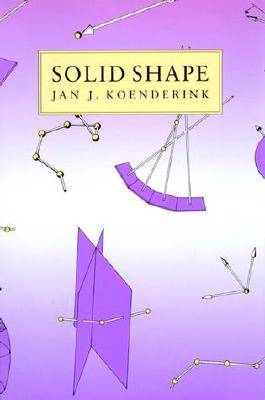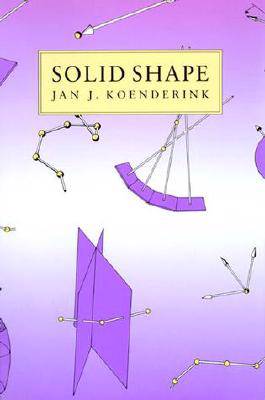
- Retrait gratuit dans votre magasin Club
- 7.000.000 titres dans notre catalogue
- Payer en toute sécurité
- Toujours un magasin près de chez vous
- Retrait gratuit dans votre magasin Club
- 7.000.0000 titres dans notre catalogue
- Payer en toute sécurité
- Toujours un magasin près de chez vous
Description
Solid Shape gives engineers and applied scientists access to the extensive mathematical literature on three dimensional shapes. Drawing on the author's deep and personal understanding of three-dimensional space, it adopts an intuitive visual approach designed to develop heuristic tools of real use in applied contexts. Increasing activity in such areas as computer aided design and robotics calls for sophisticated methods to characterize solid objects. A wealth of mathematical research exists that can greatly facilitate this work yet engineers have continued to reinvent the wheel as they grapple with problems in three dimensional geometry. Solid Shape bridges the gap that now exists between technical and modern geometry and shape theory or computer vision, offering engineers a new way to develop the intuitive feel for behavior of a system under varying situations without learning the mathematicians' formal proofs. Reliance on descriptive geometry rather than analysis and on representations most easily implemented on microcomputers reinforces this emphasis on transforming the theoretical to the practical. Chapters cover shape and space, Euclidean space, curved submanifolds, curves, local patches, global patches, applications in ecological optics, morphogenesis, shape in flux, and flux models. A final chapter on literature research and an appendix on how to draw and use diagrams invite readers to follow their own pursuits in threedimensional shape.
Solid Shape is included in the Artificial Intelligence series, edited by Patrick Winston, Michael Brady, and Daniel Bobrow
Spécifications
Parties prenantes
- Auteur(s) :
- Editeur:
Contenu
- Nombre de pages :
- 720
- Langue:
- Anglais
- Collection :
Caractéristiques
- EAN:
- 9780262111393
- Date de parution :
- 21-03-90
- Format:
- Livre relié
- Format numérique:
- Genaaid
- Dimensions :
- 158 mm x 237 mm
- Poids :
- 1224 g

Les avis
Nous publions uniquement les avis qui respectent les conditions requises. Consultez nos conditions pour les avis.






